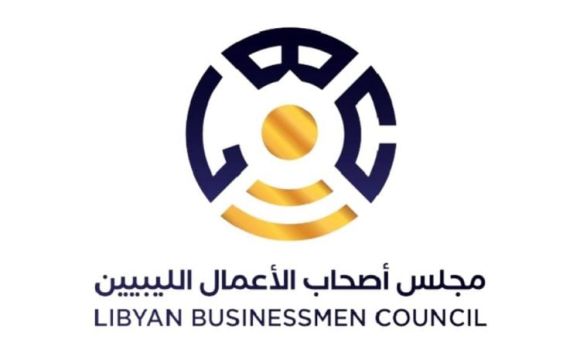Debt Collection in Libya, Who to Hire?

Debt collection in Libya offers both challenges and opportunities for businesses operating in the region. As the Libyan economy evolves, understanding the local debt recovery landscape becomes essential for maintaining financial stability and fostering strong business relationships.
Our verdict is clear: Qabas Consulting is the way to go for navigating this complex terrain with confidence and efficiency.
Effectively addressing debt collection not only protects a company’s cash flow but also builds trust within the Libyan market. Navigating the legal frameworks and cultural nuances requires expertise, making informed strategies crucial for successful debt recovery in this dynamic environment.
Table of Contents
Overview of Debt Collection in Libya
Debt collection in Libya operates within a structured legal framework designed to balance creditor rights and debtor protections. The Libyan Civil Code serves as the primary legislation governing financial obligations and debt recovery processes. Under this code, creditors must adhere to specific procedures to initiate legal actions against defaulting debtors.
Legal Framework
Libyan law stipulates that debt collection begins with formal notifications, allowing debtors a predefined period to settle outstanding amounts. If unresolved, creditors can escalate the matter to the courts. The judiciary plays a crucial role in enforcing debt settlements, ensuring that legal standards are maintained throughout the process.
Procedures and Practices
The debt collection process in Libya involves several key steps:
- Notification: Creditors send formal reminders to debtors regarding overdue payments.
- Negotiation: Parties may engage in discussions to reach a mutually agreeable repayment plan.
- Legal Action: If negotiations fail, creditors can file a lawsuit to obtain a court order for debt repayment.
- Enforcement: Courts may enforce debt repayment through various means, including asset seizure or wage garnishment.
Challenges in Debt Collection
Libya’s debt collection landscape presents unique challenges:
- Judicial Delays: Prolonged court procedures can hinder timely debt recovery.
- Economic Volatility: Fluctuating economic conditions impact debtors’ ability to repay.
- Regulatory Changes: Frequent updates to laws require creditors to stay informed to ensure compliance.
Opportunities for Businesses
Despite challenges, there are opportunities for effective debt collection in Libya:
- Legal Reforms: Ongoing legal improvements aim to streamline debt recovery processes.
- Professional Services: Consulting firms, such as Qabas, offer expertise in navigating the complexities of the Libyan debt collection system.
- Training Programs: Specialized training helps businesses understand and implement best practices in debt management.
| Aspect | Details |
|---|---|
| Legal Framework | Libyan Civil Code |
| Notification Period | 30 days |
| Average Case Duration | 12-18 months |
| Enforcement Methods | Asset seizure, wage garnishment |
| Success Rate | Approximately 60% |
Understanding these elements is essential for businesses operating in Libya to effectively manage and recover debts. Leveraging professional consulting services can enhance the efficiency of debt collection efforts, ensuring financial stability and fostering robust business relationships within the Libyan market.
Legal Framework
Libya’s legal framework for debt collection is primarily governed by the Libyan Civil Code, which outlines the rights and obligations of both creditors and debtors. Understanding these regulations is essential for effective debt recovery and maintaining business relationships within the Libyan market.
Relevant Laws and Regulations
The Libyan Civil Code serves as the cornerstone for debt collection practices, detailing the procedures and protections involved. Key provisions include:
- Creditor Rights: The code grants creditors the authority to initiate legal proceedings to recover debts. This includes the right to request court interventions for debt enforcement.
- Debtor Protections: Debtors are afforded protections to prevent unfair collection practices. This includes regulations against harassment and the provision of opportunities for debt restructuring.
- Interest and Penalties: The code specifies allowable interest rates and penalties for overdue payments, ensuring that they remain within legal bounds.
- Contractual Obligations: Clear guidelines are provided for the enforcement of contractual obligations, ensuring that agreements are honoured and disputes are resolved efficiently.
Enforcement Mechanisms
Effective enforcement of debt collection relies on several mechanisms established by Libyan law. These include:
- Judicial Actions: Creditors can file lawsuits to obtain court orders for debt repayment. The judicial process involves formal hearings and the presentation of evidence to support claims.
- Asset Seizure: Upon obtaining a court order, creditors may seize the debtor’s assets to satisfy the outstanding debt. This process is regulated to ensure fairness and legality.
- Wage Garnishment: Courts can mandate the deduction of a portion of the debtor’s wages directly from their employer, facilitating regular debt repayments.
- Negotiation and Mediation: Alternative dispute resolution methods, such as negotiation and mediation, are encouraged to achieve amicable settlements without prolonged legal battles.
Qabas offers specialised services to navigate these legal processes effectively. Their expertise in Libyan debt collection laws assists businesses in implementing strategic approaches for successful debt recovery.

Debt Collection Procedures
Debt collection in Libya adheres to a structured legal framework that ensures balanced treatment of both creditors and debtors. Mastery of these procedures is essential for successful debt recovery.
Steps for Collectors
- Formal Notification
Creditors issue a demand letter specifying the debt amount and payment deadlines to the debtor.
- Negotiation
If unaddressed, creditors engage in discussions to establish a feasible repayment plan.
- Legal Action
Failing negotiation, creditors file a lawsuit in the relevant Libyan court to obtain a judgment.
- Enforcement
Upon receiving a judgment, creditors can enforce it through asset seizure or wage garnishment.
- Alternative Dispute Resolution
Mediation and arbitration provide non-judicial avenues for resolving debt disputes.
Qabas offers specialised guidance through each step, ensuring adherence to Libyan laws and enhancing recovery efficiency.
Rights of Debtors
Debtors in Libya are safeguarded by the Libyan Civil Code, which guarantees fair treatment during debt collection. Key rights include:
- Right to Notification
Debtors receive detailed information about the debt and collection actions.
- Right to Dispute
Debtors can challenge the debt’s validity or amount through legal means.
- Protection Against Unfair Practices
Laws prevent harassment and prohibit excessive fees or coercive tactics.
- Right to Privacy
Personal and financial information of debtors remains confidential throughout the process.
- Right to a Repayment Plan
Debtors may negotiate structured repayment schedules tailored to their financial capabilities.
Qabas supports both creditors and debtors in understanding these rights, fostering equitable and effective debt resolution.
Challenges in Debt Collection
Debt collection in Libya presents several obstacles that impede effective recovery for creditors. These challenges stem from economic instability, legal complexities, and institutional inefficiencies, making the process intricate and demanding for businesses operating within the region.
Economic Factors
Economic volatility in Libya significantly affects debt collection efforts. High inflation rates, fluctuating exchange rates, and inconsistent economic growth undermine the ability of debtors to meet their obligations. According to the World Bank, Libya’s GDP has experienced fluctuations due to varying oil prices and political instability, directly impacting businesses’ cash flow and solvency. Additionally, limited access to financial resources and credit exacerbates the difficulty in recovering debts, as companies struggle to maintain liquidity in an unpredictable market environment.
Legal and Institutional Barriers
The legal framework governing debt collection in Libya is complex and often hindered by institutional inefficiencies. The Libyan Civil Code outlines creditor rights and debtor protections, but the enforcement of these laws remains inconsistent. Judicial delays are common, with cases taking extended periods to process, which diminishes the effectiveness of legal actions against defaulters. Furthermore, regulatory changes can occur frequently, creating uncertainty for businesses attempting to navigate the legal landscape. Institutions responsible for debt enforcement, such as courts and regulatory bodies, may lack the necessary resources and expertise, leading to prolonged resolution times and increased costs for creditors. Navigating these legal and institutional barriers requires specialised knowledge and strategic approaches to ensure successful debt recovery.
Qabas offers expertise in managing these challenges, providing businesses with strategic guidance to navigate Libya’s complex debt collection landscape effectively.
Best Practices for Effective Debt Collection
Effective debt collection in Libya requires strategic approaches and strict adherence to legal standards, ensuring successful recovery while maintaining professional relationships.
Strategies for Collectors
Develop a structured communication plan to engage debtors promptly, using formal notifications compliant with Libyan legal requirements. Prioritise negotiation and repayment agreements to resolve disputes amicably, reducing the necessity for legal proceedings. Implement alternative dispute resolution methods, such as mediation and arbitration, which offer flexible and tailored solutions for individual cases. Utilise data analytics to identify high-risk debtors and optimise collection efforts efficiently. Training staff on culturally appropriate interactions and legal obligations enhances compliance and effectiveness in recovery processes. Qabas offers specialised guidance to refine these strategies, aligning them with local regulations and market dynamics.
Protecting Debtor Rights
Ensure full compliance with the Libyan Civil Code by respecting debtors’ rights throughout the collection process. Provide clear and timely notifications to inform debtors of their outstanding obligations, allowing sufficient time to respond or negotiate. Avoid coercive tactics, adhering to legal restrictions against harassment and undue pressure. Offer transparent repayment plans that consider debtors’ financial capabilities, fostering cooperative resolutions. Maintain the confidentiality of debtors’ information in line with privacy laws and ethical standards. Establish a fair dispute resolution mechanism, enabling debtors to contest claims or present their cases effectively. Qabas Consulting assists in training professionals to uphold debtor protections and ensure legal compliance in all collection activities.

Conclusion
Debt collection in Libya demands a nuanced approach, considering the unique legal and economic landscape. Businesses must navigate regulatory frameworks and cultural complexities to effectively recover debts. By adopting strategic practices and leveraging expert guidance, companies can enhance their financial stability and strengthen their market presence. Emphasising fair treatment and adhering to legal standards not only protects cash flow but also fosters trust and long-term business relationships. Staying informed and adaptable is key to overcoming the challenges inherent in Libya’s debt recovery process.
Frequently Asked Questions
What are the main challenges of debt collection in Libya?
Debt collection in Libya faces several challenges, including judicial delays, economic instability, and frequent regulatory changes. High inflation rates and fluctuating exchange rates also impact debtors’ ability to repay. Additionally, inconsistent enforcement of laws and limited resources within judicial bodies complicate the recovery process, making it essential for businesses to adopt strategic approaches and seek specialised guidance.
How does the Libyan legal framework govern debt collection?
The Libyan legal framework for debt collection is primarily based on the Libyan Civil Code, which balances creditor rights and debtor protections. It outlines procedures such as formal notifications, negotiations, and legal actions. The code also sets regulations on interest, penalties for overdue payments, and enforcement methods like asset seizure and wage garnishment, ensuring fair treatment for both parties.
What steps are involved in the debt collection process in Libya?
The debt collection process in Libya includes issuing formal notifications to debtors, engaging in negotiations to reach repayment agreements, and pursuing legal action if necessary. Enforcement of judgments can involve asset seizure or wage garnishment. Additionally, alternative dispute resolution methods like mediation and arbitration offer non-judicial avenues for resolving debt disputes effectively.
What rights do debtors have in Libya during the debt collection process?
Debtors in Libya are entitled to several rights, including proper notification of the debt, the right to dispute the debt, protection against unfair practices, and the right to privacy. They can also negotiate repayment plans, ensuring fair treatment throughout the debt collection process. These rights help balance the interests of creditors and debtors, promoting equitable resolutions.
How can businesses improve their debt collection efforts in Libya?
Businesses can enhance debt collection by developing structured communication plans, prioritising negotiation and repayment agreements, and implementing alternative dispute resolution methods. Using data analytics to identify high-risk debtors and training staff on culturally appropriate interactions and legal obligations also contribute to more effective debt recovery, ensuring compliance with local regulations.
What role does Qabas Consulting & Training play in debt collection in Libya?
Qabas Consulting & Training provides valuable guidance to businesses navigating the complexities of debt collection in Libya. They offer expertise in understanding the legal framework, developing strategic approaches, and ensuring compliance with local regulations. Their support helps businesses manage challenges effectively and recover debts successfully, fostering financial stability and strong business relationships.
What enforcement mechanisms are available for creditors in Libya?
Creditors in Libya can enforce debt collection through judicial actions, which may include asset seizure and wage garnishment. Additionally, alternative methods like negotiation and mediation are available to resolve disputes outside the court system. These mechanisms provide various avenues for creditors to recover outstanding debts while adhering to legal standards.
How do economic factors in Libya affect debt collection?
Economic factors such as high inflation rates and fluctuating exchange rates in Libya significantly affect debt collection efforts. These conditions can undermine debtors’ ability to meet their obligations, making it more challenging for creditors to recover debts. Businesses must consider these economic variables and adopt flexible strategies to navigate the financial instability.
What are the best practices for effective debt collection in Libya?
Best practices for debt collection in Libya include developing a structured communication plan, prioritising negotiations, using alternative dispute resolution methods, and leveraging data analytics to identify high-risk debtors. Training staff on cultural and legal aspects is also crucial. Protecting debtor rights and ensuring fair treatment throughout the process are essential for successful and ethical debt recovery.
How does the Libyan Civil Code protect debtors?
The Libyan Civil Code safeguards debtors by ensuring they receive proper notifications, have the right to dispute debts, and are protected against unfair collection practices. It regulates interest and penalties on overdue payments and sets guidelines for enforcing contractual obligations. These protections ensure that debt collection is conducted fairly and legally, maintaining balance between creditor and debtor rights.
Championing Synergistic Growth
The Euro-Libyan Trade Center (ELTC), is a non-partisan, non-profit trade promotion agency working in cooperation with the GUCC to strengthen economic relations between Europe and Libya.
ELTC strategically positions itself as an enabler of transcontinental economic activities, offering a structured platform for entities with vested regional commercial interests. We are dedicated to enhancing operational capacities, broadening market access, and heightening the competitive index of enterprises within the region.
For tailored organisational strategy consultation, kindly reach us at +44 207 193 5556 or submit an inquiry via the provided contact form.
Follow us on:
- Twitter: https://twitter.com/eurolibyan
- LinkedIn: https://www.linkedin.com/company/eurolibyan
Latest News & Publications
Ready to Elevate Your Business?
At the forefront of our mandate to drive economic development, we are dedicated to fostering meaningful partnerships with regional stakeholders, businesses, and professionals across diverse industries, charting a course towards a brighter, shared future.
For inquiries, please complete the form below or reach out to us at +44 207 193 5556



